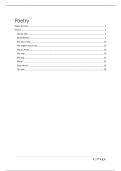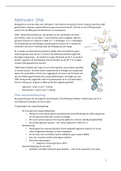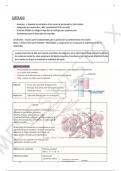Resume
Summary Poetry Summaries
- Cours
- Établissement
This document contains analysis of the following poems: Sonnet 130, Eating poetry, We wear masks, The english are so nice, African poem, The Man, The hug, Home, From the air, The ride
[Montrer plus]






